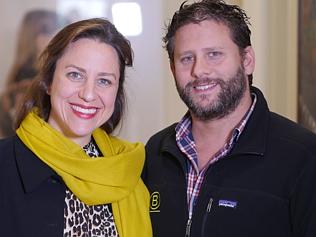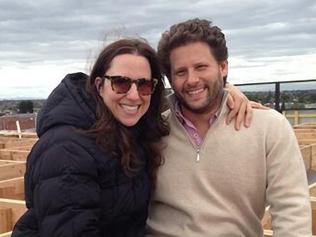The Great 8: 007, Tony McAvoy, Barrister, 51
The first indigenous Australian to be appointed senior counsel talks to Alan Kohler.
Alan Kohler: You had to make two decisions on the way to becoming a lawyer: to go to university and to do law. How big a decision was the first?
Tony McAvoy: Going to university was a very big step. Finishing Year 12 was a huge step. Nobody in my extended family had completed high school. Every year the Queensland education department organised a weekend camp for kids in Years 11 and 12. When I was in Year 11, I think 12 of us from across the state attended. Many went on to university. That camp was instrumental in letting me understand that I wasn’t the only person in my situation. I was also to some degree politicised because we had strong community leaders speaking about the idea that we could and should participate in the political life of the community.
Were you told you were a future leader?
They were simply focusing on getting us through high school because there really were no Aboriginal graduates then. When I started law school I didn’t know any other Aboriginal people studying law in Queensland. When I graduated in 1988, I was only the second Aboriginal person in Queensland to be admitted as a solicitor.
Did you immediately specialise in Native Title?
No. I was working in a small general practice in Brisbane. I did bouts in the Aboriginal Legal Service because the firm also had the ALS retainer, so I did a fair bit of crime. Our major clients were the Building Workers’ Industrial Union, so we did a lot of plaintive, personal injury litigation. We also acted for most of the Aboriginal organisations in Brisbane, so I learnt from some of the best Aboriginal and Torres Strait Islander politicos around.
What was the significance of the Quandamooka Native Title case in Queensland?
That occurred in 2011. I’d started work in the NSW government in 1994 and joined the Bar in 2000. I’d had various dealings with the Aboriginal community from North Stradbroke Island. Then in 2005 I was asked by the Native Title Representative Body in Southern Queensland if I’d take a brief in the Quandamooka matter. We got a great result [the Federal Court recognising the Quandamooka people’s Native Title rights over North Stradbroke Island and its waters] and the most important thing about it is the island is on Brisbane’s doorstep. The Quandamooka people proved Native Title could survive the growth of cities like Brisbane.
Most barristers are guns for hire, cabs in a rank. But that doesn’t seem to be the case with you. You are fully invested in your work.
I care about what I do. I’m very committed to obtaining justice for my clients, but I also understand my obligation to the profession and the “cab rank” rule. Occasionally I appear for individuals challenging the rest of their claim group, and I have to run arguments contrary to what the bulk of the Native Title holders want.
Are they sometimes contrary to what you believe at heart?
That doesn’t matter. It’s not my place to impose any beliefs upon my clients. It doesn’t matter which side of that argument you’re on, it can be very emotionally draining.
But you are passionate about Native Title?
I’m passionate about getting a just result.
Do you ever get disillusioned by the processes of the law?
Certainly there are aspects of the justice system that can’t accommodate all the needs of the clients that I have.
Do you find yourself doing more pro bono work than your family would like?
I do a lot of pro bono work, but so does my wife, who is a solicitor. I’m well paid, so I can take on a significant amount of pro bono work in areas I find really interesting.
Where do you enjoy yourself the most? In court, or when you’re talking to clients on location?
Speaking with very senior Aboriginal witnesses on location is the absolute cream of what I do. It is a privilege to speak with very learned and wise people about matters of high law in circumstances where they may not have spoken with anybody about that particular evidence in decades, if ever. That’s not to say I don’t get a fantastic kick out of appearing in court. I enjoy seeing my preparation come to bear on the case. I particularly enjoy strategising my way through the case and figuring out where and how to make the points that really count.
Do you think Native Title should be transferable?
There needs to be some way in which communities that want to use their Native Title rights for some economic purposes should be able to, without risking the title and the inheritance of future generations.
But not selling it?
TM: Not selling it.


